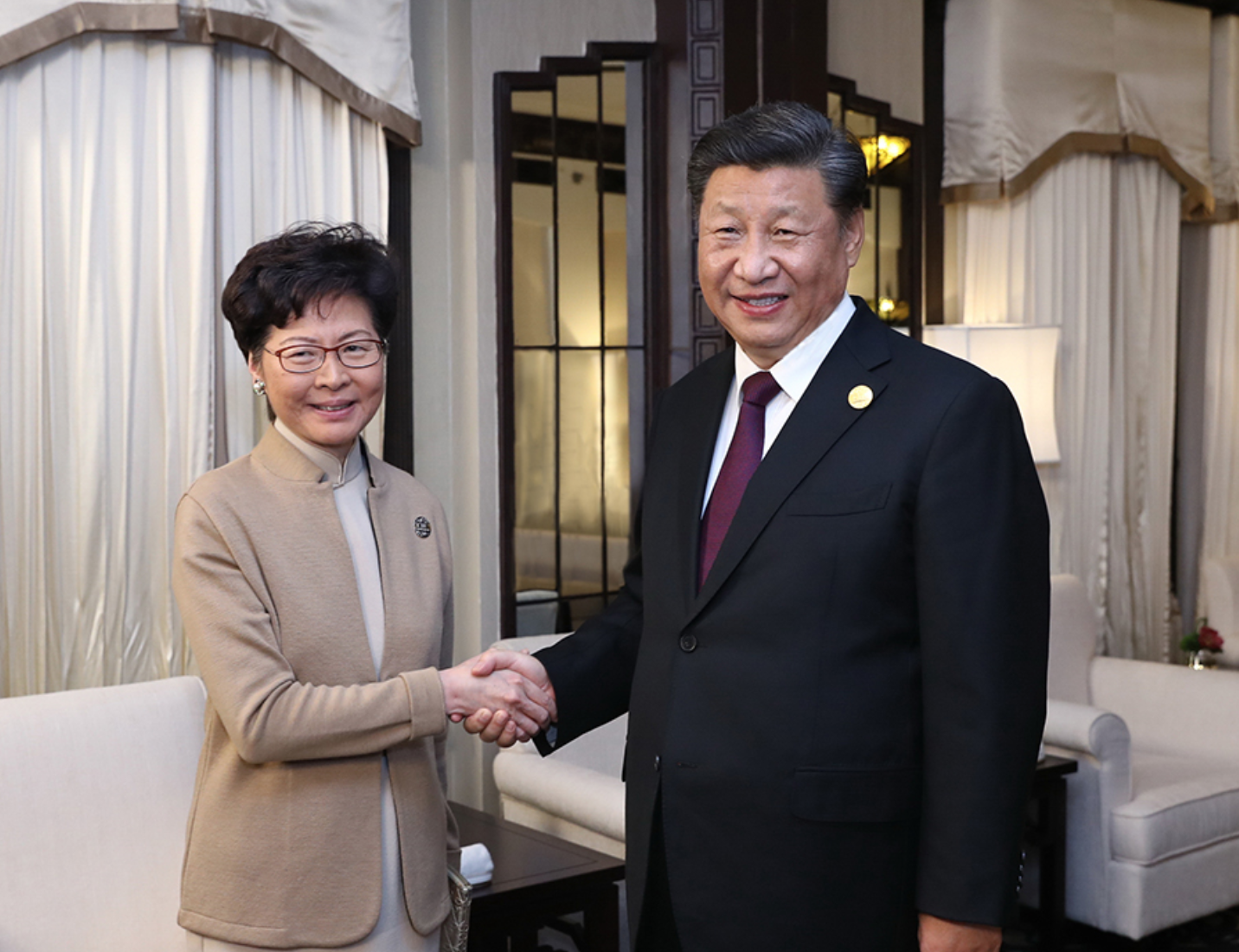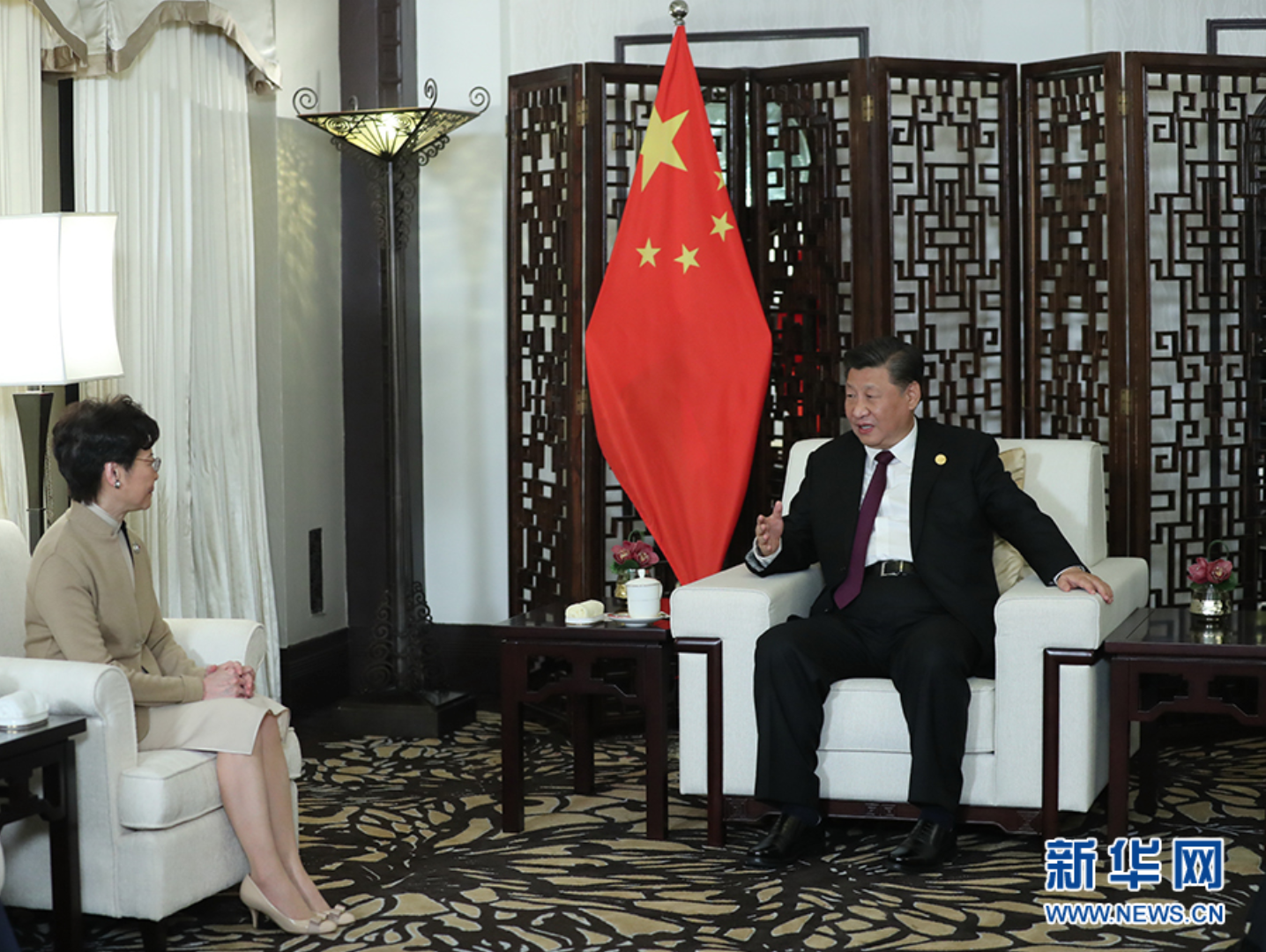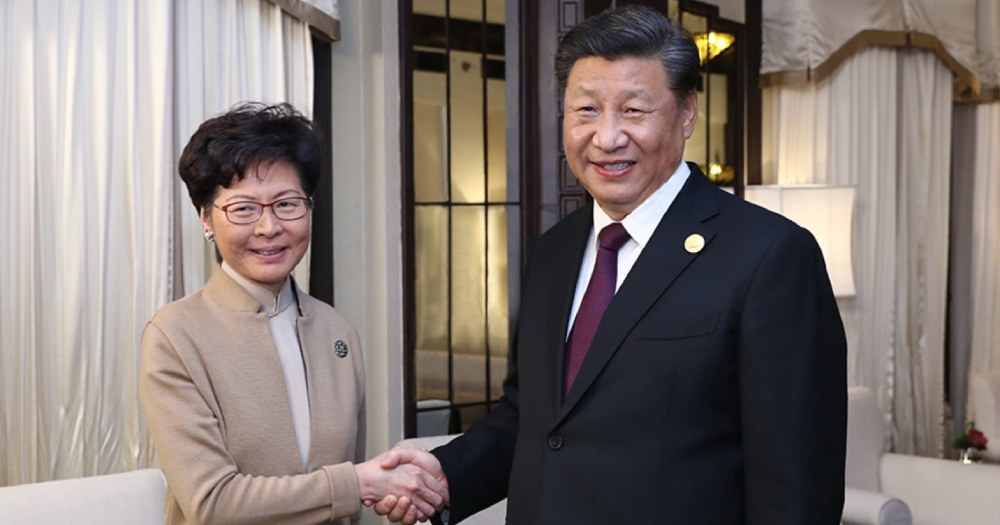Chinese President Xi Jinping has reiterated his support for Hong Kong's Chief Executive (CE) Carrie Lam.
Xi trusts Lam
In a meeting on Monday, Nov. 4 -- the first official talk between both leaders since the protests began in June -- Xi expressed "a high degree of trust" in Lam's government with regards to their management of the ongoing unrest, Chinese state media Xinhua reported.
The pair was photographed smiling and shaking hands with each other.
 Image via Xinhua
Image via Xinhua
SAR government has stabilised the situation in Hong Kong
Xi also affirmed the work that the Chinese Special Administrative Region (SAR) has done.
He reportedly said to Lam: "The unrest has persisted for five months. Under your leadership, the SAR government has stabilised the situation, improved the social environment, and did a ton of hard work."
 Image via Xinhua
Image via Xinhua
Quelling the violence is Hong Kong's top priority
Xi continued: "Quelling the violence and restoring order still remain Hong Kong's top priority. Curbing violent activities by enforcing the law is imperative in protecting the welfare of the larger Hong Kong population."
"At the same time, (the Hong Kong government) has to engage in dialogues with various groups in society, and improve the lives of the people," he added.
"I hope that everyone in Hong Kong can carry out the 'one country, two systems' arrangement accurately, come together in unity and protect Hong Kong's prosperity and stability."
Lam is here to stay
Beijing has repeatedly said it supports Lam and her government.
The Chinese foreign ministry, in quashing rumours that Beijing is going to replace Lam, most recently said on Oct. 23 that the central government "firmly supports" her to put an end to violence and restore order as soon as possible.
Previously, Beijing has also backed Lam's decision to suspend the extradition bill that sparked the months-long protests.
Lam admitted she messed up
Beijing's firm backing of Lam is in spite of the CE admitting her governing missteps.
She previously said during a "closed-door" session that she has caused "unforgivable havoc", and that she would quit if she could.
The embattled leader, whose popularity is at a historic low, also said she has "very limited" room to resolve the crisis, since she has to serve "two masters", referring to the central government and the people of Hong Kong.
In contrast to other embattled leaders who were forced to step down after unrest erupted among the people, such as Lebanese Prime Minister Saad Hariri who resigned after less than two weeks of widespread demonstrations, Lam got to keep her job despite admitting that she has messed it up.
Rationale behind Beijing's decision
Beijing's decision to stand by Lam makes a lot of sense, as replacing her would likely lead to even more problems in a situation that is already volatile, according to CNN.
This is because should the position of CE become vacant, the process to select a new one would come under scrutiny once again, and this has long been a point of contention in Hong Kong since the 1997 handover.
Lam, as well as her predecessors, were selected by an "election committee" that is supposedly broadly representative of society.
However, the 1,200-member committee is mostly comprised of elites who are loyal to Beijing, and therefore, is inclined to follow the central government's lead.
In 2014, the Standing Committee of the National People's Congress (NPCSC) -- China's top legislative body -- introduced further limits on the election of the CE, saying that he or she has to be approved by Beijing.
The move then triggered the Umbrella Movement protests.
"Genuine universal suffrage" remains an issue
Universal suffrage through electoral reform is one of the "five demands" that Hong Kong protesters have put forth.
They see the right to choose their own leader to govern Hong Kong as being protected under the Basic Law, the city's mini constitution.
This demand, however, is seen by pro-Beijing critics as a rejection of the central government's authority over the city, leading to the perception that the protesters want to be independent from China, even though independence is not included in their demands.
But while Beijing's firm backing of Lam could help prevent an escalation of the situation, it does nothing to improve Xi's image among the protesters.
In fact, Xi's endorsement of Lam might further entrench the perception that Lam is no more than Beijing's puppet, who carries out the central government's instructions against the Hong Kong people's wishes.
Top image via Xinhua
If you like what you read, follow us on Facebook, Instagram, Twitter and Telegram to get the latest updates.
